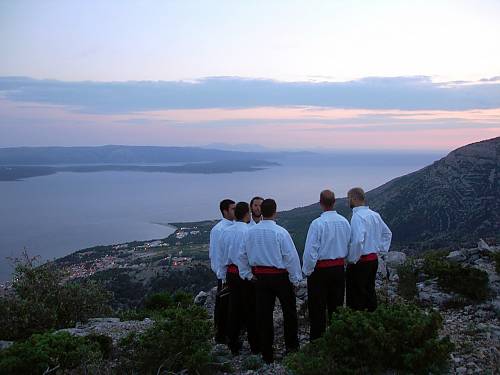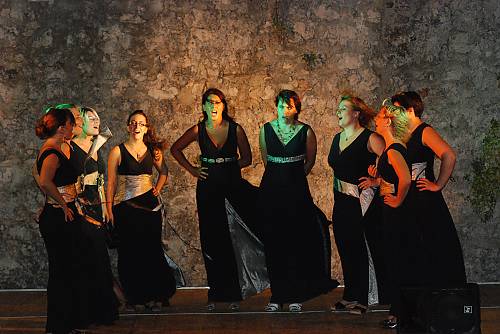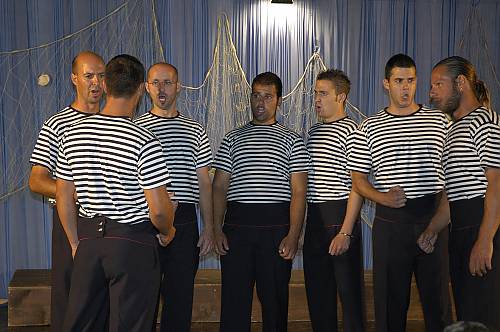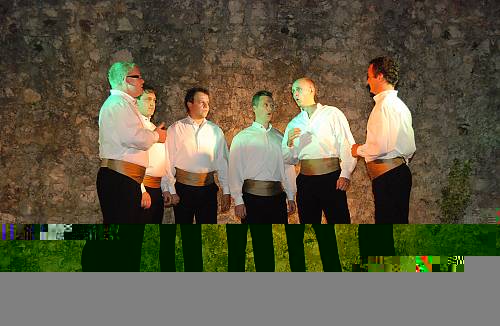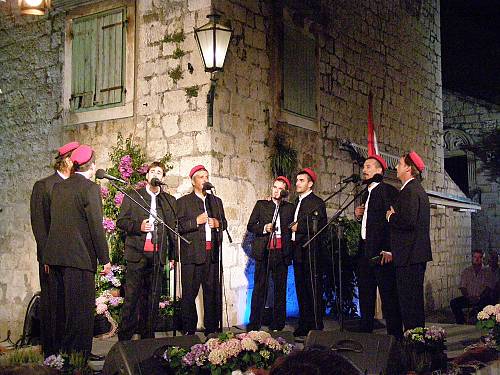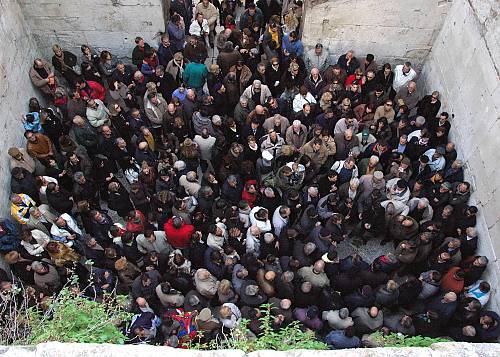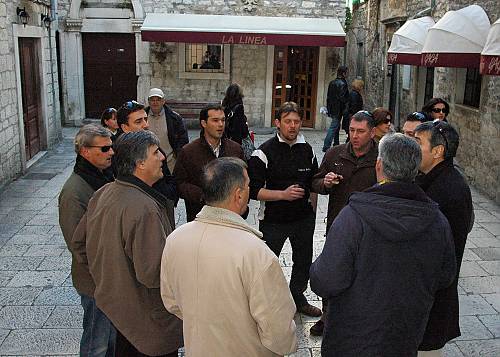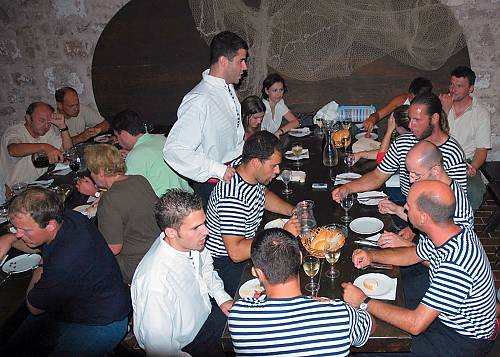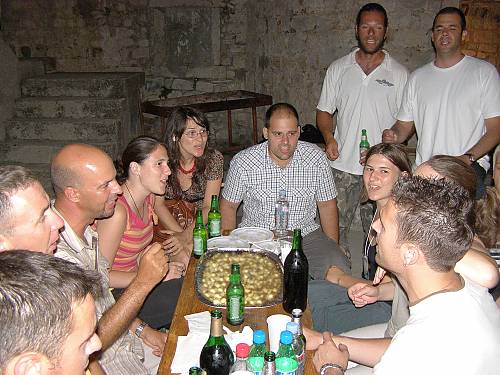Klapa multipart singing of Dalmatia, southern Croatia
Inscribed in 2012 (7.COM) on the Representative List of the Intangible Cultural Heritage of Humanity

Klapa singing is a multipart singing tradition of the southern Croatian regions of Dalmatia. Multipart singing, a capella homophonic singing, oral tradition and simple music making are its main features. The leader of each singing group is the first tenor, followed by several tenori, baritoni and basi voices. During performances, the singers stand in a tight semicircle. The first tenor starts the singing and is followed by the others. The main aim is to achieve the best possible blend of voices. Technically, klapa singers express their mood by means of open guttural, nasal sotto voce and falsetto singing, usually in high-pitched tessitura. Another feature is the ability to sing freely, without the help of notation. Topics of klapa songs usually deal with love, life situations, and the environment in which they live. Bearers and practitioners are skilled amateurs who inherit the tradition from their predecessors. Their ages vary with many younger people singing with older singers. In ‘traditional klapa’, knowledge is transferred orally. ‘Festival klapa’ is more formally organized with a focus on performance and presentation. In ‘modern klapa’, young singers gain experience by attending performances and listening to recordings. Local communities see klapa singing as a central marker of their musical identity, incorporating respect for diversity, creativity and communication.
